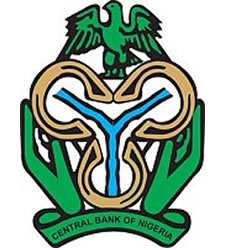
Some banks in Nigeria have given deposit targets to their workers as they face low cash inflow due to the shrinking of public sector funds component of banks’ deposit base. The overall cash inflow from the system in the month of August, so far, has been reported to be about N440 billion compared to about N613 billion in the corresponding period of last month.
Liquidity problems have hit some banks since elections ended in April but the recent order of the Treasury Single Account (TSA) by President Muhammadu Buhari has made matters worse for banks.
Though some bank treasurers are worried over the implementation of the TSA which will remove public sector funds from the banking system, they are still expecting inflow from Federation Account Allocation Committee (FAAC) at least from the states and some federal establishments this month.
Citing bank treasurers, Vanguard reports that though the funds are not coming in as in previous months, about N232 billion is being expected before end of next week.
A source at FSDH Merchant Bank told Vanguard: “We expect that a total inflow of about N775.28bn will hit the money market from the various government maturing securities and Federation Account Allocation Committee (FAAC) in the month of August 2015”. According to the analysis, about N232 will be coming from FAAC inflows.
Mr. Wale Abe, Executive Secretary of Financial Markets Dealers Association (FMDA), the umbrella body of banks’ treasurers, also said that the TSA policy would take a chunk of funds from banks, resulting in tighter liquidity and loss of float to banks.
He indicated that there will be adjustments to banks’ pricing of their instruments which will ultimately affect lending.
But he also hopes there will be other policy measures to address any adverse effect of the full implementation of the TSA policy, adding that it will be difficult to appraise the full impact of the policy especially in a situation where the overall fiscal and economic policies of the government is yet to be articulated.
Afrinvest Group, a Lagos-based financial investment house, said: “Whilst the directive issued came as the first official statement by the Presidency on the TSA, the Nigerian National Petroleum Corporation (NNPC) had earlier begun withdrawing its funds from banks for retirement into CBN. This had an impact on liquidity level in the banking system, resulting in a surge in money market rates during the period as banks scrambled for funds to cover their liquidity positions”.
The statement added: “With the TSA implementation now extended to all federal MDAs, the Nigerian banking industry, on an aggregate basis, would be affected in terms of deposits and funding cost structure”.
A bank worker who spoke on the condition of anonymity said her bank started giving her monthly deposit targets about two months ago and this has been increasing every month. Asked what could happen to workers who do not meet the targets set for them, she said: “No one is sure, but those who meet their targets are commended. I was given N5,000 for meeting my target last month.”
Although the CBN is against such measures by banks, they have often result into it to tackle liquidity problems, knowing that no staff would be bold enough to make an official report to the apex bank.
Data from the CBN as at end of June 2015 put total deposits (demand, time and savings) in the financial system at N13.5 trillion. Analysis of this shows that the private sector accounts for 90.7 per cent (N12.2trillion) of total deposits, while public sector funds accounts for 9.3 per cent (N1.3trillion) which will be lost to TSA.
FBN Capital, the investment arm of First Bank of Nigeria Plc, stated in its money market reports last weekend that the NNPC withdrew about N400 billion from the banks last month, pushing Open Buy Back (OBB) and overnight interest rates to a record high of 50 per cent. It, however, stated that this pressure was corrected when FAAC inflow came to the banks within the same period.
In the implementation of the TSA, there will be no FAAC inflow to correct or compensate for the outflows.
Support InfoStride News' Credible Journalism: Only credible journalism can guarantee a fair, accountable and transparent society, including democracy and government. It involves a lot of efforts and money. We need your support. Click here to Donate
